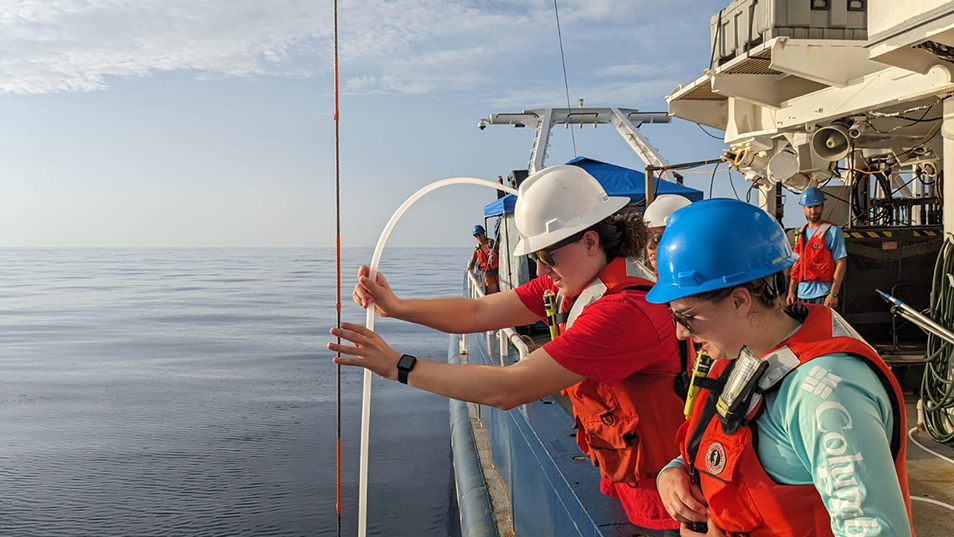Contact us
401 W. Kennedy Blvd.
Tampa, FL 33606-13490
(813) 253-3333
Emma Chestang ’25 had only ever traveled around the southern United States, so being on a research ship for 12 days was completely new territory for her.

Hannah Hunt ‘20, a current Ph.D. student, said there was a last-minute opening on the cruise, and Emma Chestang ’25 jumped at the opportunity to join in. Photo courtesy of Emma Chestang
Chestang, a marine chemistry major, spent the summer working in Tim Conway’s Lab at the University of South Florida’s College of Marine Science.
Have a story idea? Contact Brianna Kwasnik, Digital Content Editor/Writer
Read more UT Life stories.
Subscribe to News and UT Life.
More UT News